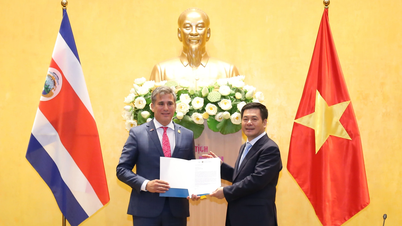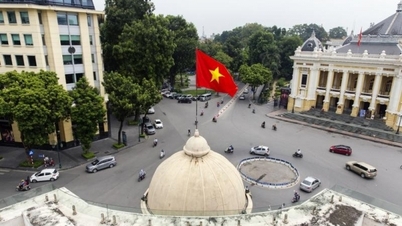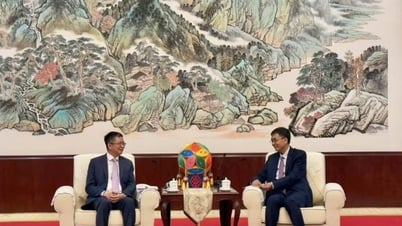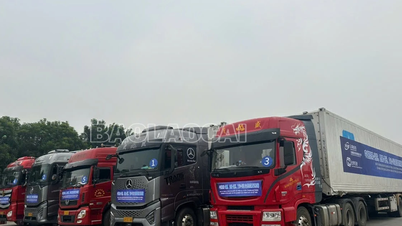On August 2, 2024, the US Department of Commerce issued a conclusion that it has not recognized Vietnam as a country with a market economy, although it has recorded many positive changes in Vietnam's economy in recent times, but it still continues.
This means that Vietnamese enterprises exporting goods to the US market will continue to be discriminated against in US anti-dumping and anti-subsidy investigations. The actual production costs of Vietnamese enterprises will continue to not be recognized, and the "replacement value" of a third country must be used to calculate the dumping margin.

If the US Department of Commerce had reviewed the records and practices in Vietnam objectively and fairly, it would have been able to acknowledge the fact that Vietnam is a market economy as recognized by 72 other economies, including major economies such as the UK, Canada, Mexico, Australia, Japan, India, South Korea, New Zealand, etc.
Over the past 20 years, Vietnam's economy has undergone remarkable changes and developments. Vietnam has signed and successfully implemented 17 free trade agreements, including new-generation, high-standard free trade agreements with the European Union, CPTPP countries, and the United Kingdom, with many extensive and comprehensive commitments from tax cuts to improving labor standards, environmental protection, ensuring sustainable development, government procurement, transparency, etc. These changes have been clarified in more than 20,000 pages of information and documents that the Vietnamese Ministry of Industry and Trade sent to the US Department of Commerce, demonstrating Vietnam's strong progress on all six criteria set by the US Department of Commerce when considering recognition of a country as a market economy. The arguments provided by the Ministry of Industry and Trade to the US Department of Commerce also fully and consistently demonstrate that Vietnam's level of implementation of these six criteria is at least equal to and often better than that of other countries that have been recognized as market economies; and in fact is equal to or better than countries that have always been considered market economies. Therefore, based on the specific criteria of US law, the recognition of Vietnam as a market economy is objective and fair.
The Ministry of Industry and Trade thanks 41 organizations, individuals, and business and trade associations of the United States for expressing strong support for the recognition of Vietnam as a market economy, including organizations and individuals representing American businesses such as the National Agricultural Association of the United States (NASDA), the American Chamber of Commerce (AmCham), the US-ASEAN Business Council (USABC), and the American Retailers Association, and hopes to continue to receive the support of the above organizations and individuals.
In the coming time, the Ministry of Industry and Trade will study and analyze the arguments in the Vietnam Economic Assessment Report of the US Department of Commerce, to supplement and complete the arguments to submit a dossier requesting the US Department of Commerce to review the market economy status for Vietnam in order to concretize the Vietnam - US Comprehensive Strategic Partnership, thereby promoting bilateral economic, trade and investment cooperation, bringing practical benefits to businesses and people of the two countries.
In addition, the Ministry of Industry and Trade will accompany Vietnamese enterprises exporting to the US market in anti-dumping and anti-subsidy investigations to ensure the highest benefits for the Vietnamese business community.
According to Section 771(18) of the US Tariff Act of 1930, the six criteria for considering a market economy country include: (i) The level of currency convertibility; (ii) The issue of wage and salary negotiations between employees and employers; (iii) The level of foreign investment in economic activities; (iv) The issue of state ownership and private ownership; (v) The level of government control over certain resources and prices and (vi) Other factors.
Source: https://kinhtedothi.vn/my-chua-cong-nhan-viet-nam-la-quoc-gia-co-nen-kinh-te-thi-truong.html



![[Photo] Ready for the top competitions of Vietnamese table tennis](https://vphoto.vietnam.vn/thumb/1200x675/vietnam/resource/IMAGE/2025/5/18/9c547c497c5a4ade8f98c8e7d44f5a41)

![[Photo] General Secretary To Lam visits exhibition of achievements in private economic development](https://vphoto.vietnam.vn/thumb/1200x675/vietnam/resource/IMAGE/2025/5/18/1809dc545f214a86911fe2d2d0fde2e8)





























![[Photo] National conference to disseminate and implement Resolution No. 66-NQ/TW and Resolution No. 68-NQ/TW of the Politburo](https://vphoto.vietnam.vn/thumb/1200x675/vietnam/resource/IMAGE/2025/5/18/adf666b9303a4213998b395b05234b6a)


































































Comment (0)